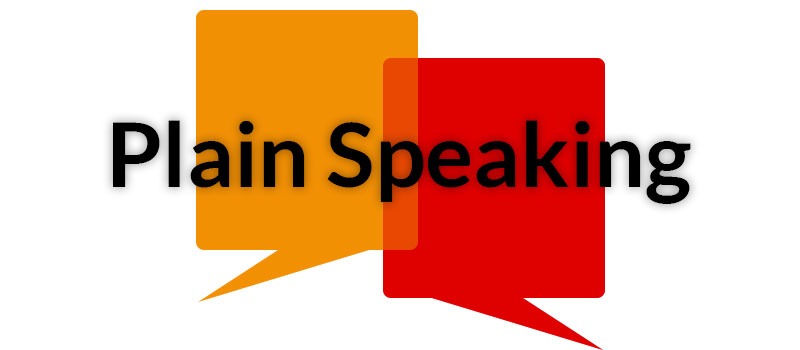
Missing: Plain-speaking leadershipLINKEDIN | 25 JUNE, 2017
Japan’s emperor Hirohito had to do it for the first time in his life and during the lives of his subjects, the Japanese people – announce the defeat of their forces in the war in 1945. He said in Japanese: "endure the unendurable and bear the unbearable". That was as plain a speak as he could, given the extremely conservative and classical language the kings used. He also added that “the war did not go the way his country would have desired”. He avoided terms like ‘loss’ and ‘surrender’. In today’s world, this would still be considered a plain-speak.
National leaders, Corporate chiefs and even the guardians of the Church have been generally found less than ‘truthful’ on many occasions. The language of plainspeak has deserted them over the generations. President Obama ‘admitted’ to mistakes in Libya – not when it happened, but years later when he was about to demit office. Robert McNamara owned up some serious war errors in Vietnam, three decades after it happened leading to loss of several US combat soldiers. The mea culpa moments come and stare at the leaders but their remorse is often hidden in language play or too late. The Greek who had a role in coining the term ‘euphemism’ did not foresee such colossal misuse.
The corporate world is not far behind. Consider this: Dick Fuld, the man who presided over the downfall of the 150 year old Lehmann Brothers, reappeared recently to try to change the 2008 script. He said : We were not a bankrupt company! Drawing essentially from the utterances in the Trump presidency, Thomas Friedman wrote recently for the New York Times to call these times as low on ‘truth and trust’. With perplexing concepts like ‘alternative facts’ in our discourse, plain English is not in fashion. “If we are going to work on Uber 2.0, I also need to work on Travis 2.0 to become the leader that this company needs and that you deserve.” said Travis Kalanick just a few days ago. The translation: “I am sorry; I have made mistakes”. That is how the shareholders read it anyway. In all these cases, sadly however, the real truth is evident or becomes obvious later, to all except the person who missed the opportunity to admit it.
Leaders hope that the busy media would crowd out their ducking plainspeak. Unfortunately, ‘karma’ catches up promptly even in this poorly focused news reporting regime, thanks perhaps to the wide-awake social media. Neither the average citizen nor the law enforcers can be fooled all the time, it appears.
Several theories abound for lying publicly, ranging from escaping from public glare to wanting to ‘alter facts’ permanently to protecting office or saving face. Some believe there is a hierarchy of not speaking plain language – some subtle and harmless and the others more diabolic and conceited. In most cases, it is never just one instance of not speaking plainly. It snowballs into a series of further layers of language twists and bundles of mistruths.
Strangely, we tell children not to speak lies, admit to their wrongdoings, apologise if they are mean to their playmates, speak responsibly and coach them to deal with remorse and confession. How alarmingly does this early indoctrination desert leaders? Is the society so tolerant that plain speaking is not embraced as the first option? Are the leaders guilty of bad role modelling? Or is there a morality shift? When will we appreciate plain speakers for their timely admission rather than just punish them for their wrong acts?


